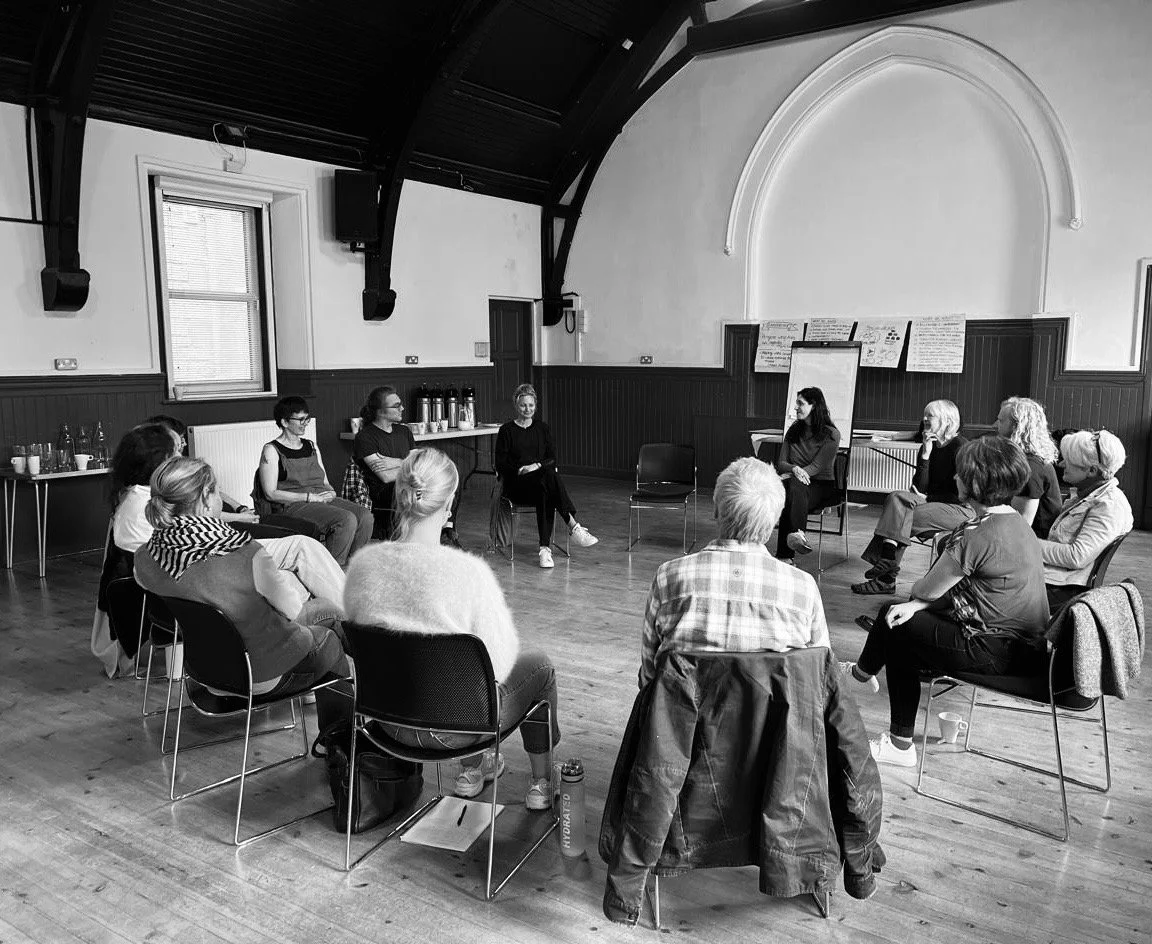Deep Democracy for Organisations
Effectively managing collaboration, team dynamics, and interpersonal relationships is not easy.
You might notice repeating problems with the following:
Decision making
Gaining real commitment to actions
Communication breakdowns
Enabling participation, engagement, self-responsibility
Being open to different views
Dealing with tension, paradox or conflict
Deep Democracy Training offers a powerful way of dealing with group dynamics and provides a method for making effective decisions, navigate difference and tension, create inclusive cultures, and unlock creativity and continuous learning.
Many leadership or organisational trainings offer great ways to grow yourself and/or your teams, but do not incorporate how to deal skilfully with unsaid dynamics and inherent differences that are present.
This course specifically shows people how to surface these unheard views including alternative views and tensions and turn them into energy for sustainable change.
Other ways this programme is different:
It’s preventative - equipping leaders and teams to spot and address tension, resistance, and confusion before they derail progress.
It blends deep personal growth with practical, proven tools that help you stay composed, aware and effective, especially in complex or difficult moments. Leadership effectiveness has less to do with methods or techniques and more with who the leader is and how you show up.
It’s not just theory. You’ll immediately apply the tools to real-life challenges as you learn them, finding solutions and insights in real time.
It enhances the quality of your relationships, which is an essential element proven to influence both organisational results and the emotional satisfaction people experience at work.
Get started here, or read on for more about what you will learn…
What you will learn:
Collaborative Decision Making
Solve problems and make decisions in participative ways that gain buy-in from all involved, without the need to reach consensus.
Facilitate dynamic conversations which unleash engagement and creativity.
Create safety in large or small groups for difficult conversations to take place.
Surface the wisdom of different views and improve decision- making by incorporating this valuable information.
Resolving Conflict and Tension
Successfully navigate disagreement and discomfort without retreating from it, avoiding tough decisions, accommodating or losing clarity.
Appropriately address “elephants in the room.”
Recognise the underlying tensions that block a group's progress, diagnose when group dynamics become polarised and rigid, and know what tools to use in such situations.
Resolve differences of opinions, arguments and conflicts instead of allowing anger and blaming to continue. Learn to unleash the creative potential that lies within every conflict.
Use tension as an opportunity for learning, growth and to improve relationships.
Improve organisational and team culture
Retain valuable people and stop the expensive revolving door of new recruits.
Create an emotionally mature culture where people can skilfully navigate tough moments together with self-awareness and candour, reducing patterns of sickness leave and burnout.
Shift from siloed thinking to holistic collaboration, enabling cross-functional teams to work together effectively.
Develop leaders with finely tuned listening skills who can understand team concerns and take skilful, responsible, and confident action before challenges escalate or derail actions.
Understanding Group Dynamics
Read the dynamics of a group, pick up on the early signs of resistance and emerging conflict and act in a timely manner to reduce tension.
Understand the obstacles to good communication, learn to listen and pay attention to different viewpoints.
Observe group dynamics that exist beyond individuals and manage them for more effective collaboration.
Begin and end meetings with a powerful way to connect the group and get a handle on what is happening in the room.
It’s for:
Teams or groups
Heads of Teams, Senior Leaders, Project Managers
Groups of C-suite leaders and Directors
